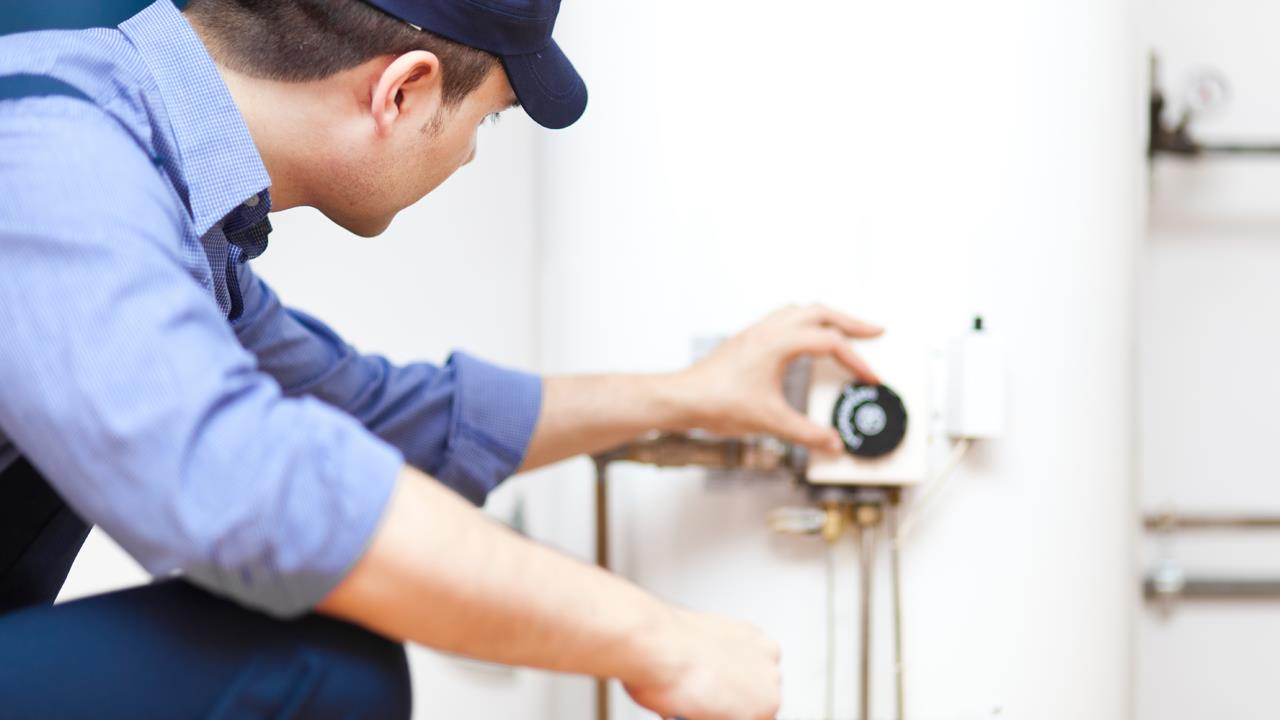


Since the introduction of combi boilers in the early 1970s, hot water cylinders have fallen out of favour for some homeowners and installers. Richard Harvey, Category Director for Heating at Wolseley, says that unvented cylinders still have a place in the modern heating industry.
Vented systems were the heating method of choice for homeowners for decades. Using a cold-water storage tank in the loft, gravity pulls water to the cylinder below and enables hot water to be drawn off. Generally vented cylinders worked well, but the system’s reliance on gravity to push water around the property could sometimes lead to low flow rates.
Flow rates can often be hindered with combi boilers too; particularly in multi-generational homes with multiple bathrooms and en-suites.
Unvented cylinders operate at mains water pressure as they are fed directly by the cold-water mains, however there are a number of important things to consider before and during the installation of an unvented system.
Efficiency
Unvented cylinders are an excellent way for homeowners to make their properties more energy efficient, and the model the installer chooses can make a crucial difference to the customer’s utility bills. Most cylinders on the UK market have impressive efficiency rates, but it’s still worth doing some homework even if the product has an ErP rating between A to C.
Cylinders with polyurethane and FC/HCFC-free injected foam insulation have much-improved heat insulation since the days where they were surrounded by a glass fibre jacket. Going one step further, efficiency can be improved by up to 40% through a cylinder that uses vacuum insulation panels. Vacuum panels of 10mm thickness can provide the same thermal efficiency as 60mm of foam, reducing the space taken up by the cylinder.
Single-coil cylinders are typically heated via an oil or gas boiler, but larger single coils can be used to connect to a heat pump. Solar thermal technology can be used but will require a twin coil cylinder.
Materials
Due to the high pressure of the water held in an unvented cylinder, it’s important to choose a material based on its strength and ability to withstand corrosion. The UK cylinder market is predominantly stainless steel, but copper and mild steel options are also available.
Duplex stainless steel is the most popular material when looking for a cylinder thanks to its impressive corrosion resistance. It is also lightweight, meaning cylinders are easier to transport and fit.
Unlike stainless steel, mild steel cylinders will need to be coated or glass-lined to make them corrosion resistant. They will also need a sacrificial anode to further prevent corrosion, which will then be consumed in place of the metal it is protecting. It’s also worth noting that cylinders made from lower-grade stainless steel must be monitored for signs of corrosion at least once every year.
Longevity
Along with choosing the right material, even more can be done to ensure the life of the cylinder meets the customer’s expectations.
Always look for credentials and marques that demonstrate the product’s quality and its ability to meet British and European safety regulations. Approvals from the likes of WRAS demonstrate compliance with the regulations and, by visiting their website, installers can search any product to check its approvals and installation requirements.
Installers should also look for a cylinder that has an extended guarantee, so that all parties have peace of mind if anything goes wrong. It is worth checking the guarantee and making homeowners fully aware of any limitations it may include. Usually, there will be conditions such as regular servicing that customers will have to meet to ensure the guarantee remains valid.
Location
Unvented systems can be installed almost anywhere in the home as no additional water tank is required. Lightweight slimline cylinders can fit in the same space as vented cylinders, while horizontal cylinders can be installed into homes with loft conversions. By moving the cylinder into the loft, space is freed up on the first floor which could then be used to fit a WC.
When installing a cylinder in an outhouse or garage, insulate all of the pipework thoroughly to protect the system from frost.
Keep it maintained
As with a closed heating system, it is important to protect the hot water system. With closed systems, chemicals and a system filter should be applied to validate boiler warranties and protect the system from magnetite and other harmful build-ups. This also maximises system efficiency. Variations in local water hardness may require installers to recommend that a scale reducer is fitted to treat water entering the cylinder, prevent limescale build-up, and to ensure the cylinder performs to its best.
Unlike thermal stores, an annual inspection of the full system is also required to validate most manufacturer’s warranties and to stay compliant with G3 Building Regulations. This service should include checks like expansion relief valve testing, leak identification, and thermostat function testing.
It’s recommended that the annual check with your customer is booked after completing the installation.
If you'd like to keep up-to-date with the latest developments in the heating and plumbing industry, why not subscribe to our weekly newsletters? Just click the button below and you can ensure all the latest industry news and new product information lands in your inbox every week.